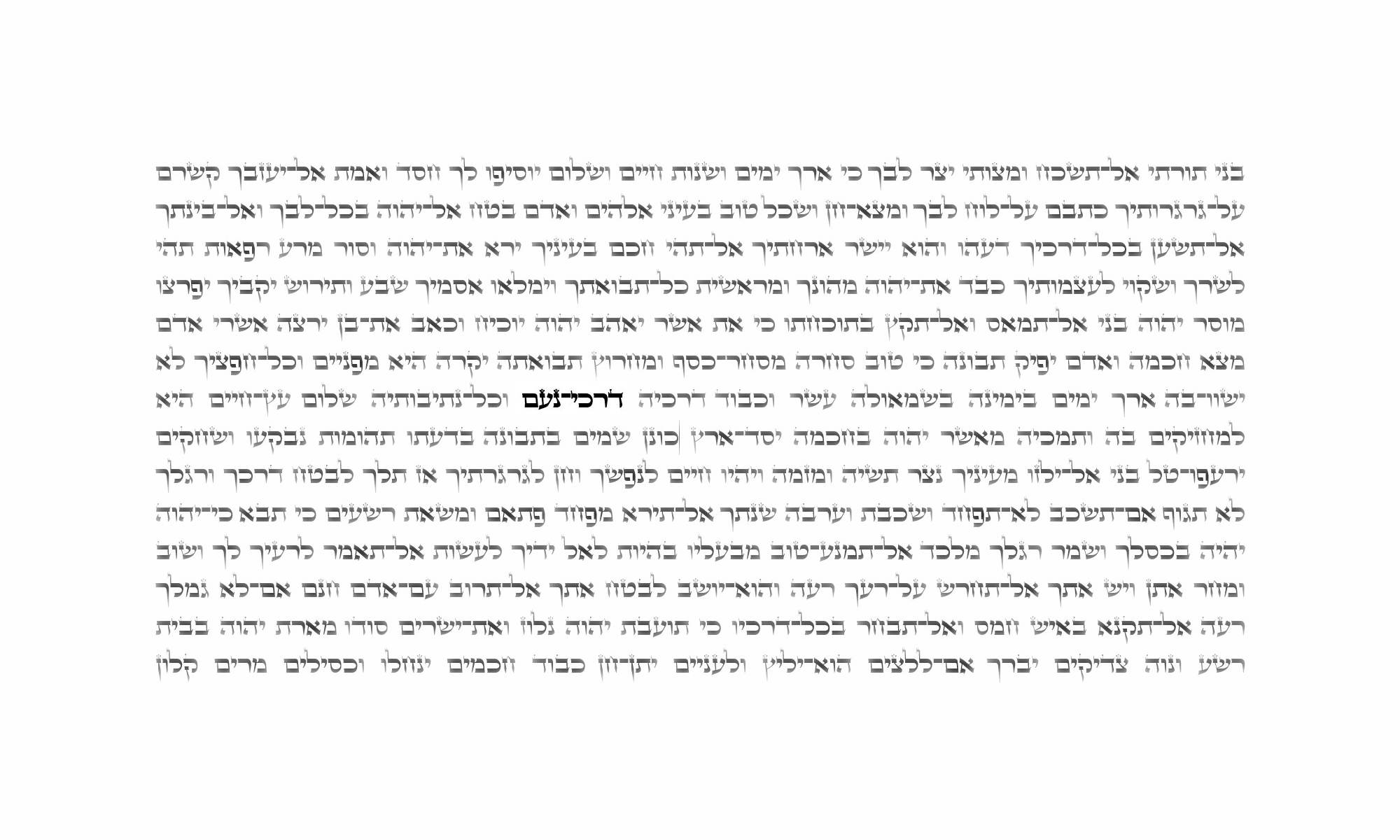This week’s parsha is called chukat, referring to the “chukkim” or laws that have no apparent reason. The most famous of these is the para aduma, the red heifer which purified that which was impure.
There is nothing random in the Torah. Perhaps one reason the Torah places this parsha about the chokkim that do not have any reason straight after Korach has to do with what Korach’s wife erroneous rationale that she shared with Korach in last parsha.
Korach’s wife tried to convince Korach to rebel by belittling the mitzvot. One such mitzvah was tzitzit where she argued that it was illogical for simply the fringes of tzitzit to be techelet. She reasoned that if techelet was such a holy colour and reminded one of the sky and kiseh hakavod, then why weren’t all of the tzitzit techelet? As a result, as part of his political plan, Korach and his rabble wore tzittzit that were died completely blue.
The fundamental problem with the underlying theme of Korach and his wife’s reasoning was that the mitzvot had to make sense and appeal to their intellect in order for them to agree to follow them. They had to appeal to man’s (finite, limited) logic and to be consistent and sensible. This is the opposite of emuna, of serving Hashem because we have faith in Him even when His laws do not seem to make sense to us. Thus, perhaps the Torah brings the parsha of Parah Aduma to teach us how actually many of the laws do not make sense to us, but we must do them anyway, l’shma. The underlying motivation for practicing the mitzvot should be because Hashem told us to. Temimus, simplicity is the middah that Yaakov Avinu was renowned for.
A question arises, When, if ever, should we resort to logic in order to perform mitzvot? There is a shiur from Rabbi Gottlieb of Ohr Samayach that we have to serve Hashem with all of our faculties, including logic. That’s why the Gemara is so full of logical arguments. However, enlisting logic and our intellect means that we are relying on at least an element of Lo Lishma, not for the sake of Heaven, as we are rather doing a mitzvah because it makes sense to us and appeases our quest for intellectual understanding. What is the answer to this?
Perhaps we need both. This is also supported by the halachic concept (Rav Yehudah in the name of Rav brought in Pesachim 50b) of “lo lishma in order to reach a point of doing it L’ishma. First, we start off doing something for our own sake (in this case to appease our need for logic and understanding) but ultimately we do it for Hashem’s sake.
Rav Schwartz teaches that Pesach time of year is the time for questions and appealing to our logic. In contrast, the Purim time of year is a time of temimus, of doing simply without knowing why. We need both, but we start the year with questions and end the Jewish calendar year with a more l’shma approach. Interestingly, in the calendar of the months, the time it takes for us to work our way from Pesach to Purim is nearly the entire year, suggesting that reaching this l’sha level of working for Hashem is a work in progress and takes time to achieve, perhaps because it is counter to our natures. In contrast, the calendar time between Purim and Pesach is a month or so (very short time as we know when planning Pesach cleaning!), suggesting it may not take us long to revert to our natural, inquiring, intellectually satisfying personalities.
How can we apply this message to our parenting practice this week?
When we explain reasons for our parenting decisions to our children, this is our Pesach time, the time for satisfying their intellect and need to know. But sometimes we have to also make decisions or ask them to do something “because I said so” with no reasons attached. This is the para aduma, the chokkim, the Purim aspect of our parenting practice. Our children need to know and receive both. Ideally we can strive for them to reach a perfect balance, with our chokkim being the ultimate true motivator for their behaviour.
Wishing you a beautiful Shabbas filled with the ability to appease our intellectual yearning and yet also do things purely for the sake of Heaven
With bracha
Chaiya Danielle Ledder
